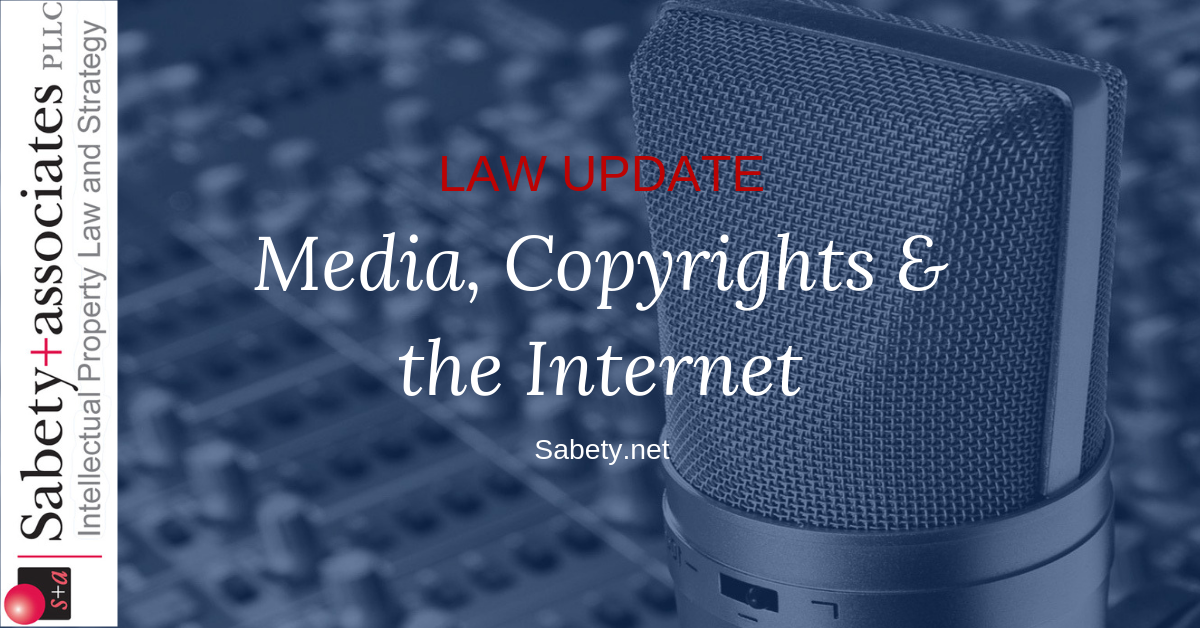May 28, 2020. Trump’s Executive Order tasks the Federal Communications Commission to “clarify…and determine the circumstances” under which “a social media platform loses its liability protection” for editorial actions “not taken in good faith.” Communications Decency Act (47 USC § 230(c)). In addition, the order tasks the Federal Trade Commission with “taking action” against “deceptive acts or practices” where social media “restrict speech in ways that do not align with those entities’ public representations about those practices.”
The Executive Order overlooks how 230(C)(2)(A) provides liability protection from civil liability for the “action taken in good faith to restrict access or availability of material.” The shield against civil liability applies to damages or liability for the specific act of restriction or making available. Further, the statute says that the liability shield applies “whether or not such material is constitutionally protected.” It seems difficult to prove damages for, or to obtain an injunction prohibiting, annotation of false or misleading statements—let alone ones made by a public official.
An additional complexity is that the D.C. Circuit Court of Appeals just issued a ruling denying plaintiff Freedom Watch’s argument that Google, Facebook, Twitter and Apple conspired to suppress conservative political views in violation of the First Amendment, Sherman Antitrust Act and the District of Columbia Human Rights Act (Freedom Watch, Inc. V. Google Inc., U.S. Court of Appeals, D.C. 19-7030, May 27, 2020). The Court concluded that the First Amendment prohibits only “governmental abridgment of speech”—not private companies like the social media platforms. Id. p.2. Further, the Court held that the Sherman Antitrust Act claim failed because there was not sufficient evidence to support a claim for conspiracy amongst the competitive platforms. Freedom Watch says that it will appeal to the U.S. Supreme Court.
It is worth noting that Trump’s demand that the FCC look into regulating social media platforms contradicts its efforts to de-regulate the Internet. First, the Trump administration won a case in October, 2019 upholding the FCC’s decision that Internet Service Providers are not a “common carrier” subject to regulation. Mozilla Corporation v. Federal Communications Commission, U.S. Court of Appeals for the D.C. Circuit, No. 18-1051, October 1, 2019. In addition, the Trump administration withdrew FCC regulations prohibiting joint ownership of newspapers and broadcast television stations in the same marketplace, (FCC-CIRC1711-06)—an action that favored conservative outlet Sinclair Broadcasting.
The Trump administration has also raised the notion of Federal Trade Commission authority. The only statutory basis cited in the Executive Order is the FTC’s authority to regulate deceptive trade practices. Presumably, all Twitter has to do is put in its terms and conditions that it will label any misleading or false statement made by a public official.
Finally, any regulation of political speech by the FCC or FTC will likely be subject to court challenge on First Amendment grounds. Oddly, Trump cites to the Supreme Court case Packingham v. North Carolina, 137 S. Ct. 1730 (2017), as the legal basis for regulating speech on social media platforms. Yet in that case, the court invalidated on First Amendment grounds a law prohibiting sex offenders from accessing social media platforms that include minor children as members. In that case, the state government was prosecuting a convicted sex offender for accessing Facebook. The case did nothing with regard to whether the government could regulate a privately owned social media platform. Ironically, the Republican flagship case Citizen’s United (Citizens United v. Federal Election Commission, 558 U.S.C. 310 (2010)) may have to be distinguished in order for the FCC to assert regulatory power over Twitter. Trump faces the doctrinal problem of how it is that the FCC can regulate corporate speech when the conservative court has already held that the Federal Election Commission cannot. Nonetheless, any regulatory action by the FCC or the FTC to determine what is “good faith” will likely be subject to challenge under the Administrative Procedures Act, which prohibits “arbitrary and capricious” decision making. 5 U.S.C. 706.
It is expected that this executive order—which is not a statute– will gather dust and be quietly swept away.
#Trump # twitter #1stamendment #freespeech #FCC #communicationsdecencyact #trumpexecutiveorder #socialmedia #IPlaw

